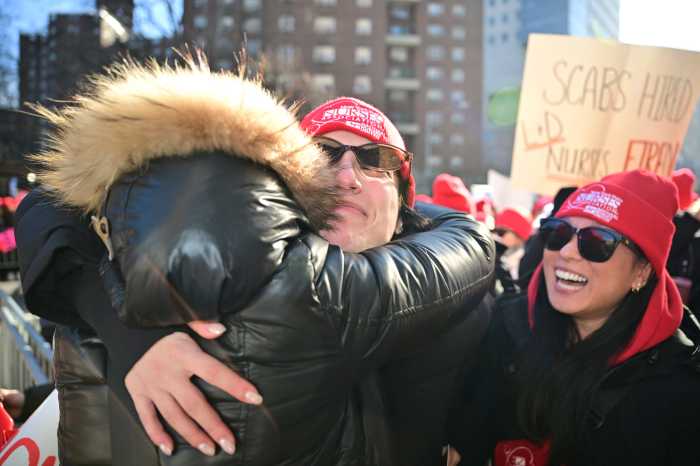A three-judge panel of the Denver-based U.S. Court of Appeals for the 10th Circuit voted 2-1 to reject a constitutional challenge to Colorado’s law prohibiting licensed health-care providers from performing “conversion therapy” on minors. The opinion for the majority of the panel in Chiles v. Salazar, released on Sept. 12, was written by Circuit Judge Veronica Rossman, who was appointed by President Joe Biden. Judge Rossman’s opinion, for herself and Circuit Judge Nancy Moritz, an appointee of President Barack Obama, found that the Colorado law did not violate the freedom of speech or of free exercise of religion of Kaley Chiles, a licensed counselor who provided therapy on minors that would fall within the broad definition of “conversion therapy” in the statutes, and she wants to continue doing so. Circuit Judge Harris Hartz, who was appointed by President George W. Bush, dissented on free speech grounds.
Colorado enacted its ban in 2019 as an amendment to the state’s Mental Health Practice Act. The act defines “conversion therapy” as any practice by which a licensed health care practitioner “attempts or purports to change an individual’s sexual orientation or gender identity, including efforts to change behaviors or gender expressions or to eliminate or reduce sexual or romantic attraction or feeling towards individuals of the same sex.” Practicing religious ministers are exempt from the ban. The statute authorizes the boards overseeing mental health professionals to “take disciplinary actions or bring injunctive actions or both. Violators can incur monetary fines and restrictions on their ability to practice by suspending or revoking licenses. According to the court, there is no record that the law has been enforced against anybody yet. Chiles maintains that she is not trying to change minors’ sexual orientation or gender identity, but rather seeks to guide them away from unwanted sexual attractions and body image issues to increase their comfort with heterosexuality and cisgender status. However, her goals fall within the scope of the definition, and she claims to fear enforcement. On that basis, the court found she had standing to bring the lawsuit.
Passage of these laws quickly attracts lawsuits by conservative religious law firms, such as Alliance Defending Freedom (ADF) in this case, who agree to represent counselors seeking injunctions against the enforcement of the law. Once a lawsuit is on file, the plaintiffs file a motion for a preliminary injunction to bar the law from being enforced while the lawsuit proceeds. In this case, U.S. District Judge Charlotte N. Sweeney, a Biden appointee, denied the motion for a preliminary injunction, finding, in line with court of appeals decisions from other states, that Chiles was unlikely to prevail on the merits of her claims, so the law should not be blocked. At this point, ADF stepped in to provide appellate counsel for Chiles.
Kiles argues that because what she is doing is restricted to “talk therapy,” it qualifies as protected speech under the First Amendment, and the state cannot show a “compelling interest” to abridge her freedom of speech. She also maintains that her views on sexual orientation and gender identity are based on her religious beliefs, which she claims to be heavily burdened by a law forbidding her to practice her faith by muzzling her talk therapy.
Chiles’ argument relies heavily on the Supreme Court’s 2018 decision in National Institute of Family & Life Advocates (NIFLA) v. Becerra, in which the Supreme Court upheld a First Amendment free speech challenge to a California law that was intended to ensure that pregnant women seeking care at clinics that were set up to deter women from having abortions would be required to receive notice of the availability of abortion services in California. The state defended the law by arguing that it was a form of regulation of health care practice in the state, with only an incidental effect on the free speech rights of the clinic operator and its staff. The Supreme Court rejected that argument, finding that this was “compelled speech,” and specifically rejected the state’s argument that the speech in question was “professional speech” that was subject to regulation as the performance of a service. Justice Clarence Thomas, writing for the court, specifically criticized court of appeals decisions that had upheld bans on conversion therapy on a theory of “professional speech” or the argument that the laws regulated “professional practice” with only an incidental effect on speech. He brought into question rulings by the Third Circuit (New Jersey) and the Ninth Circuit (California) that had embraced the professional speech theory. Thomas insisted that there is no constitutional category of “professional speech” that would be treated differently than other kinds of speech for purposes of the First Amendment.
The Atlanta-based 11th Circuit Court of Appeals relied on Thomas’s statements in striking down two local ordinances in Florida that were intended to forbid performance of conversion therapy on minors, thus opening up a split between the 11th Circuit and other circuit courts that had upheld the laws. This split is illustrated by the new 10th Circuit decision from Colorado, in which the majority of the panel followed the cases from the other circuits and rejected the 11th Circuit’s reasoning, finding that the NIFLA case was clearly distinguishable from the Colorado case. The dissenter, on the other hand, gave great weight to the 11th Circuit ruling and the statements by Justice Thomas in the NIFLA case.
In her decision to deny the preliminary injunction, District Judge Sweeney had found that the notice requirement in the NIFLA case was not really about a “regulation of professional conduct,” but rather a requirement that health care practitioners provide specific information to anybody using their clinic services. In this case, however, Colorado is seeking to forbid certain conduct, the performance of conversion therapy on minors, and the effect on speech is “incidental” to the regulation of medical practice. Thus, the state can regulate based on the legislative record supporting the evidence that conversion therapy was both ineffective in changing sexual orientation or gender identity and could cause psychological harm to minors who were subjected to it.
Dissenting Judge Hartz, echoing the 11th Circuit, insisted that the Colorado law is a content-based regulation of speech, that “talk therapy” is speech, and that strict scrutiny applies, which means the law is more likely to be struck down than upheld and its enforcement should be preliminarily enjoined pending a trial. It would be unusual for a court to deny a preliminary injunction when the plaintiff is seeking to engage in conduct that has strong free speech protection, he argued, especially when a Supreme Court decision has cast doubt on the prior court of appeals decisions.
The 10th Circuit panel majority also rejected Chiles’ religious freedom objection, finding that the Colorado law is aimed at medical practice, not religious observance, and as such is on its face “neutral” with respect to religion and generally applicable, regardless of the religious beliefs of health care providers. The panel majority rejected Chiles’ argument that because opponents of conversion therapy frequently cite their religious beliefs as the basis of their support for the practice, therefore a ban on conversion therapy is in effect targeted at religion. Judge Hartz rested his dissent solely on the free speech issue and offered no opinion on Chiles’ religious freedom argument.
The full 10th Circuit has 12 active judges, seven appointed by Democratic presidents and five appointed by Republican presidents. Reviewing the circuit court opinions on conversion therapy bans, this seems to be an issue that divides appellate judges predictably along political lines, so it seems likely that if en banc review were granted for argument before the full circuit bench, the law would likely be upheld. ADF may seek Supreme Court review directly, and in light of Justice Thomas’ comments in the NIFLA case, it is possible there could be four votes from the Supreme Court’s most conservative justices to grant review. This case could be another vehicle for the conservative Roberts Court to broaden the law on religious free exercise, which is one of the Republican majority’s evident missions.


































